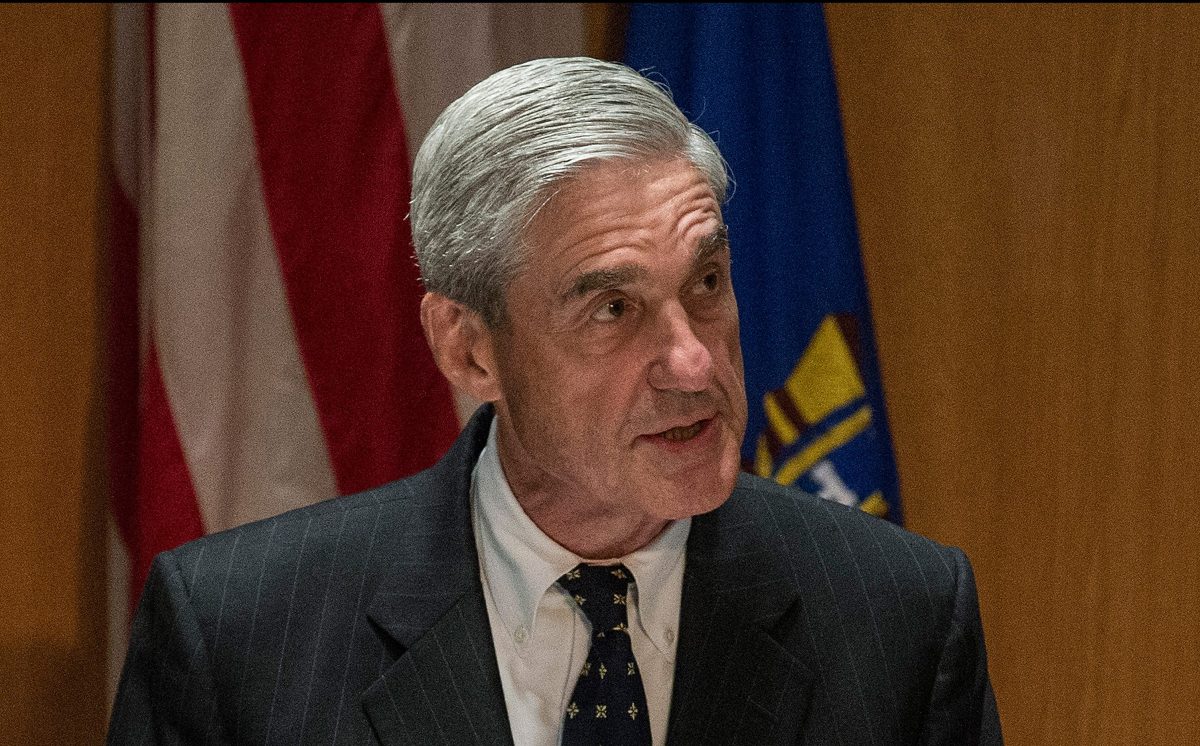
Former Trump campaign manager Paul Manafort responded to his indictment by Special Counsel Robert Mueller by challenging Mueller’s very authority to prosecute him in the first place. Late Monday night, Mueller filed his own response to Manafort’s claims, basically torching them by outlining exactly where his authority comes from and how it’s not at all as overbroad and unsupervised as Manafort says. Here are the key takeaways from the 53-page filing.
1. Mueller‘s authority to prosecute Manafort was specifically granted by Rod Rosenstein
One of Manafort’s key claims is that his indictment is improper because it has nothing to do with Donald Trump‘s campaign or its alleged ties to Russia, which is what the investigation — and Mueller’s appointment — is for. Mueller says that’s not exactly true, citing his appointment order, which grants him authority to investigate:
(i) any links and/or coordination between the Russian government and individuals associated with the campaign of President Donald Trump; and
(ii) any matters that arose or may arise directly from the investigation; and
(iii) any other matters within the scope of 28 C.F.R. § 600.4(a)
That last part refers to a regulation that says, “The Special Counsel will be provided with a specific factual statement of the matter to be investigated.” As it turns out, that factual statement, in the form of a memo from Deputy Attorney General Rod Rosenstein to Mueller, gave the Special Counsel specific authority to investigate Manafort, not just for allegations related to colluding with Russia to illegally interfere with the 2016 election, but also allegations related to “crimes arising out of payments he received from the Ukrainian government before and during the tenure of President Viktor Yanukovych.”
So much for Manafort’s claim that Mueller was never specifically granted authority to prosecute him for these charges. It turns out that Rosenstein specifically addressed these very allegations in his memo to Mueller, which was dated Aug. 2, 2017. Mueller’s court filing notes that until now, Manafort had not seen the memo (a redacted version was attached to Monday night’s filing).
2. Mueller’s appointment order was intentionally vague, but that doesn’t make it illegal
The reason why Manafort may have questioned Mueller’s specific authority to prosecute him is because Mueller’s appointment order was intentionally vague. The August 2017 memo says that the order was worded broadly “in order to permit its public release without confirming specific investigations involving specific individuals.” The specifics of Mueller’s authority were in Rosenstein’s memo.
3. Rosenstein has been watching the whole time
One of Manafort’s other claims is that Mueller has no oversight in his investigation, and that he’s just doing whatever he wants with zero accountability. Not so, Mueller says, claiming that while he may have had to look into additional matters that arose from his investigation, any time he felt the need to do so, he ran it by Rosenstein, as per his instructions. Rosenstein said in his August 2017 memo said that in such circumstances, “you should consult my office for a determination of whether such matters should be within the scope of your authority.”
Mueller confirms in his court filing that he has indeed consulted with Rosenstein during his investigation, and has received approval for the steps he has taken in his investigation and prosecution.
“Accountability exists for all phases of the Special Counsel’s actions,” Mueller’s filing says, refuting Manafort’s claims that no one is supervising him.
Mueller’s filing includes Rod Rosenstein’s own words that he delivered in testimony before the House Judiciary Committee last December, saying that Mueller is acting properly. Rosenstein said that he himself is “properly exercising oversight responsibilities” and that Mueller “iis conducting himself consistently with [Rosenstein’s] understanding of the scope of the investigation.”
4. The charges against Manafort “naturally” stemmed from the investigation of the Trump campaign
Mueller claims that while the charges against Manafort aren’t for actions he took while working for the campaign, they are certainly related. The court filing says that any investigation of Trump campaign ties to Russia “would naturally cover ties that a former Trump campaign manager had to Russian-associated political operatives, Russian-backed politicians, and Russian oligarchs.” Mueller says this also includes interactions “before and during the campaign,” because it could reveal potential motives or opportunities for the campaign to explore “possible channels for surreptitious communications.”
5. We still don’t know the extent of Mueller’s investigation
While Mueller included a copy of the Aug. 2, 2017 memo from Rosenstein, almost all of the specifics regarding which allegations he’s investigating remained redacted. Only the allegations related to Manafort and Russian collusion, as well as payments he received from Ukraine were disclosed.
Mueller Response to Manafort Motion by LawNewz on Scribd
[Image via Andrew Burton/Getty Images]